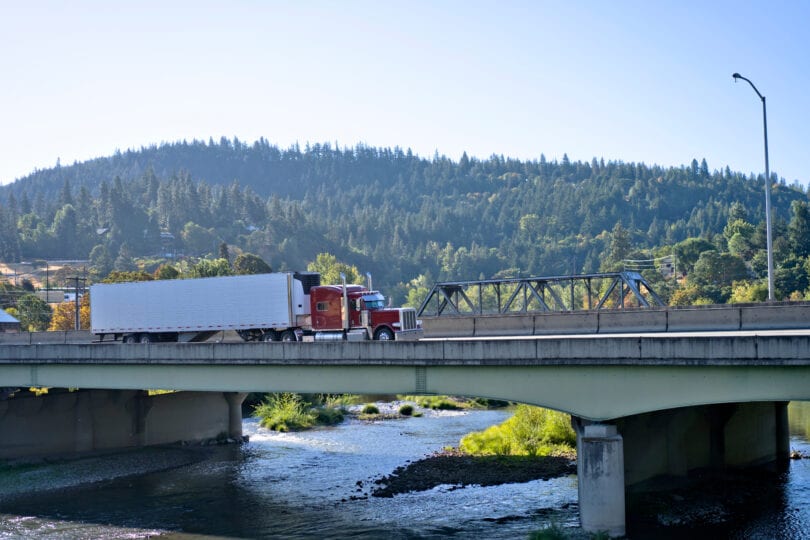Moving across state lines could very well bring about an exciting, fresh start! New town, new things to explore, and maybe a fresh new perspective. For a long distance move, hiring a professional moving company is a no-brainer, right? The DIY, rent-a-moving-truck-and-chug-across-the-states method is only doable for so long… some of us prefer to travel in a bit more comfort and let someone else deal with the giant, heavy vehicle. But that leaves one big, important question: “How do I choose interstate movers near me?”
We understand. Particularly if you live in a large city, there might be an overabundance of options. So we’re going to break down a few criteria that will help you make the best decision for your needs! It doesn’t have to be as complicated or costly as you might think.
What is an interstate mover?
Believe it or not, there are differences between companies that only perform local moves and companies that can cross state lines. Any interstate mover must comply with certain Department of Transportation (DOT) regulations, including company and vehicle registration. The DOT governs interstate commerce with a special department called the Federal Motor Carrier Safety Administration, or FMCSA. In short, the FMCSA serves to ensure that unsafe or scam moving companies aren’t able to operate across state lines.
Interstate movers also need to be familiar with insurance requirements and transportation regulations when crossing state borders. Things can vary state by state, and your team of movers needs to pay close attention. Their expertise (or lack thereof) will determine how smoothly your shipment can reach its destination!

How do I know if an interstate mover is high quality and professional?
There are a number of steps in the process of securing a moving quote. There are a number of factors that will give you green or red lights. At the very least, professional interstate movers are required to adhere to the following guidelines:
- If your home is 50 miles or less from the mover’s office, the company must conduct a physical home survey. The survey can be completed virtually using FaceTime or by creating a video. Either way, don’t skip it! Unless you specifically waive this part of the process, your movers should discuss how to go about surveying your goods.
- Once they have surveyed your goods, the interstate movers should provide you with a clear estimate. The estimate should explain whether it includes a binding or non-binding quote, as well as whether the quote is based on weight or cubic feet. Pay attention to these details. They will give hints whether you’re likely to see a big change in price on moving day.
- Your movers should provide the Mover’s Tariff, which explains any possible extra charges that could be assessed. Hopefully, the Tariff is an easy-to-understand sheet that doesn’t leave you guessing about what your moving estimate includes.
- Your movers should provide an explanation of valuation protection, often called moving insurance. Your movers will offer two choices: Full (Replacement) Value Protection or Waiver of Full (Replacement) Value Protection. Choosing Full Value Protection means you’ll be reimbursed to repair or replace anything that is damaged, up to its full value. This will generally come at a cost, but most folks moving long distance find that it’s worth it! Without Full Value Protection, your belongings are only valued at 60 cents per pound.
- Avoid signing an incomplete estimate. You also shouldn’t be pushed to agree to any arrangements that aren’t explained fully in writing. Hold out for an affordable moving quote that is clear and complete!
Do they offer the services you need?
Many moving companies have specialties that make them well-suited for particular jobs. Whether it’s custom crating for artwork or some other unique need, make sure you choose interstate movers that are up to the job. A professional moving company should explain that their teams are trained and equipped for these unique jobs. They should also have a clear pricing structure for add-ons like supplies or furniture assembly/disassembly should you require them. None of this should feel ad-libbed in the slightest!

Are they personable, helpful, and efficient?
At the end of the day, you want to choose interstate movers that you want to be in communication with. You’ll probably have to email or speak with them at least a few times leading up to moving day. Make sure they are helpful and efficient when you need something. Follow your instincts! If it doesn’t feel right, there are plenty of quality moving companies out there that would be happy to help. Let Unpakt help you begin your search!








